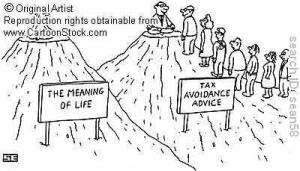Joan Didion wrote that a notebook helped us “to keep in touch”. Our notebook had significance to us only and had no relevance to another other. It was private and personal. That was her explicit statement. She did not elaborate the meaning of “keeping in touch”. The Free Dictionary defined “to keep in touch” meant to be in contact, in communication, or to maintain update in related field of knowledge. It is thus assumed that the first two definitions are more relevant in her context. Her implicit statement, “keeping in touch with ourselves” with a notebook, was a good idea and would be her central meaning of our discussion.
“Keeping in touch with ourselves” means to be in contact or in communication with ourselves. In other words, it means to “know thyself”, the Delphi Injunction. Paraphrasing her statement, we keep a notebook to help us know ourselves, that is, to be in contact or in communication with our inner voices or our other “self”, hidden in our consciousness. Richard Shusterman (pg 105) wrote that the contrast of our multiple self beliefs would come into full consciousness by awareness of our values and idea in interaction with events and people in the outside world. However Didion pointed out that our notebook was not “about other people”, contrary to what we were usually taught that “all others” were “more interesting than ourselves. Our notebook, she narrated, was about how we “felt” towards an outside event or people. It was not just how we observed or heard, but how we “interpreted” the world to make it meaningful to us. Her notebook noted her feeling, emotion, mood thoughts, ideas and association in her response to the outside world. She captured her feeling and meaning that came from her own internal experiences, rather than mere and dull jotting of factual reality. If the aim of philosophy was to seek the truth, then her momentary personal memory narrative response was equally true to her, albeit it would be considered as subjective. To “keep in touch with ourselves” we could not chose to deny our feeling and thoughts. The “inner” was our self worth as much as the outer images. Her reason for keeping her notebook was her defense in self acceptance and self worth. Her ramble and fragmented notes reflected on her personal moments in daily life. The habit of writing and the sensitivity and power of perception, with wild imagination and associations, had helped her in literary writing .In a way echoing Eliot, she had “immersed” herself in an imaginative world and “recovered” herself, without the restriction of factual reality and accurate memory.
To her, exact memory recall was not important, even in a shared event. The cardinal point was to “remember what it was to me” .The philosophical introspection queried the actual representation of the subjectivity of “I” that we wished to keep in touch. Why and what we wished to remember, and what was a memory was philosophical questions she wrote in literary art. Memories served a limited function and they were perennial arguments and controversies in shared events, due to different perceptions and memory faults and gaps, with time lapses. Her notebook was not a biographical record or diary, and accuracy of memory was not so important to her. Her notebook highlighted her feeling and emotional processes, her fear of death and loneliness, her insecurity, imaginations and associations, no matter how trivial it might appeared to another, and, thereby, in such noting, she kept “in touch” with herself. In Eastern philosophy, it was a kind of “mindfulness” practice to discover “thyself”, by noting in coded or fragmented words in a notebook. The stories in her creative noting gave her an assurance of past life, snapshots to remember who she was and what she was – “it all comes back.” to make the re-connection in her life.
Joan Didion had her own way of “keeping in touch” with herself, and I appreciated her insight. I am not being disrespectful of stating that there is nothing to agree or disagree with her idea. It was her idea and it worked well for her. There are, of course, many ways of “keeping in touch with ourselves” other than keeping a notebook. In an e-world, there are blogs, e-mails, twitters, short message texting, to note. Overdependence on memory and writing might render the mind weak, due to conceit, as advised by Shusterman (pg 9), and he suggested the possibility of “wordless thinking”. We could know ourselves through our creative art, such as music and lyric, painting and drawing, poetry and other literary genres, dances and kinesthetic activities. Philosophical self criticism and self contemplation would be another way of self scrutiny and discovery. Dialogic interactions with matured mentors would be an introspective and nuanced way of self knowing. Confucius taught that words alone were not enough to know ourselves .It would be our proper attitude, action and conduct when we communicated with another, via words, deeds and even outcome of actions. The Buddha’s “Four Foundations of Mindfulness” would be not only “wordless”, timeless and face-to-face direct communication with our body, emotion, thoughts and mental association to truly “keep in touch with ourselves” from moment to moment. Philosophy and literature are “intimately intertwined” in Eastern philosophical traditions that the West are beginning to take note. However such meditative approaches would be beyond most mundane mind in a fast pacing globalised world. Despite this, we could still “keep in touch with ourselves” by the simple awareness of in and out breathe, and be in communication with our body, mind and spirit.
In conclusion, Joan Didion’s writing on her notebook was her way of “keeping in touch” with herself, and was her ideal way, but it was by no means a universal way.
(962 words)
References:
1.Hagberg, Garry Ed. A companion to Philosophy of literature, Wiley-Blackwell, 2010,Chap 1: Shusterman, Richard: Philosophy of Literature) pages 7 – 37.
2.Smith, David Glen, Joan Didion, http://www.davidglensmith.com/wcjc/1301/slides cited 09-07-2011








![Firefly[1]](https://wonkywizard.files.wordpress.com/2013/12/firefly1.jpg?w=300)


